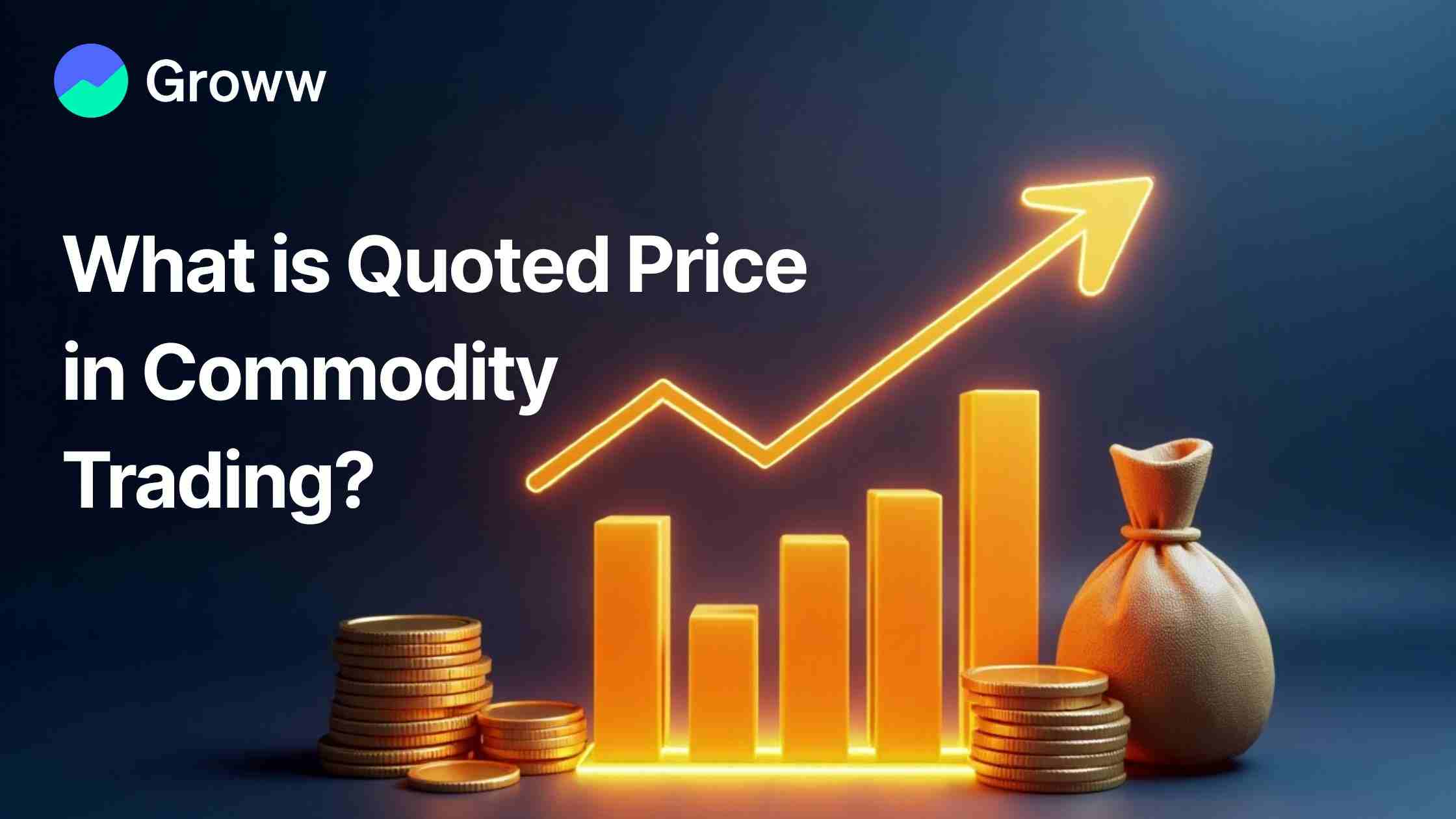What is Quoted Price in Commodity Trading

If you’ve ever opened a trading terminal, you have probably seen the prices of shares, derivatives, and commodities change rapidly. This is known as the quoted price, and it plays a crucial role in the buying and selling of financial securities. While trading commodities, it is important for a trader to know what the quoted price in commodity trading means and the various factors that affect the quoted price.
What is Quoted Price in Commodity Trading?
Before we take a look at what the quoted price is in commodity trading, let’s better understand what the quoted price is.
In commodity trading, the quoted price refers to the last traded price (LTP) of a particular commodity. However, in broader financial markets, it can also mean the best available bid and ask prices. The LTP is constantly changes on the latest bid and ask prices, providing market participants with the most recent value of an asset.
The commodities market is one of the most integral markets in the global economic landscape. Commodities are traded on the spot market or through derivative contracts like futures. Both the spot and futures markets have a quoted price.
The quoted price of a commodity in the spot and futures markets refers to the most recent traded price of the commodity.
The bid and ask prices are crucial components of the quoted price in commodity trading. The bid price is the highest price a buyer is willing to pay for a commodity, while the ask price is the lowest price at which a seller will sell a commodity. When the bid and ask prices match, a trade is executed. The last price at which a commodity is traded becomes the quoted price of the commodity.
Where are Commodity Prices Quoted?
In India, one can view the commodity prices on trading platforms linked to exchanges such as the Multi Commodity Exchange (MCX) and the National Commodity and Derivatives Exchange Limited (NCDEX).
Commodity exchanges have an electronic ticker tape that features the various commodities and their latest quoted price. Since the quoted prices of commodities change frequently during the day, the electronic ticker tape instantly updates the quoted price to give market participants access to the latest price information.
Components of Commodity Quote
To better understand how commodity prices are quoted, we must take a look at the components of a commodity quote.
Bid Price: It is the highest price a buyer is willing to pay for a commodity
Ask Price: It is the lowest price a seller is willing to sell a commodity for
Bid-Ask Spread: The difference between the bid price and ask price is known as the bid-ask spread.
Last-Traded Price: The price at which the commodity was last traded
Open: The opening price of a commodity for a particular trading session.
High: The highest-traded price of a commodity during a trading session.
Low: The lowest-traded price of a commodity during a trading session.
Previous Close: The closing price of the commodity in the previous trading session.
Change: The percentage change in the quoted price from the previous quoted price
Volume: The total quantity of a commodity traded within a given period.
Units of Quotation in Commodities
While trading commodities, the quoted price implies the per defined unit value of the commodity. For example, the price of silver is quoted in terms of per kilogram and crude oil in terms of per barrel. Furthermore, gold could be quoted per kilogram in the futures markets and per 10 grams in the spot market
Remember, when determining the total investment required in futures trading, the lot size defines the contract size and they vary depending on the commodity.
The futures market has a different quoted price than the spot market, and the lot sizes or quantity of a futures contract may also vary.
Factors Affecting Quoted Prices
There are several factors that impact the quoted price of a commodity.
Demand and Supply
The quoted price of a commodity is impacted by the forces of demand and demand. When the demand for a commodity is higher, buyers may be willing to bid higher than the ask price, which can drive up the quoted price of a commodity. On the other hand, a higher supply can result in sellers selling the commodity at lower prices, bringing down the quoted price of the commodity.
Volume
While trading commodities, the traded volume is a key factor that one should study. Commodities that are thinly traded generally see wider bid-ask spreads due to volume constraints. This can make the quoted price of a commodity volatile. Conversely, a trading volume means a more stable and competitive quoted price.
Macroeconomic and Geopolitical Factors
Global economic data, government policies, interest rates, inflation, and geopolitical events (e.g., wars, sanctions, logistics disruptions) can all impact commodity prices. These factors influence either supply, demand, or both, thus affecting the quoted price.
Macroeconomic factors, such as economic indicators, government policies, and taxation, can have a widespread impact on the commodities prices. Geopolitical events such as wars or supply chain disruptions can have a direct impact on the demand and supply of a commodity, leading to changes in its quoted price.